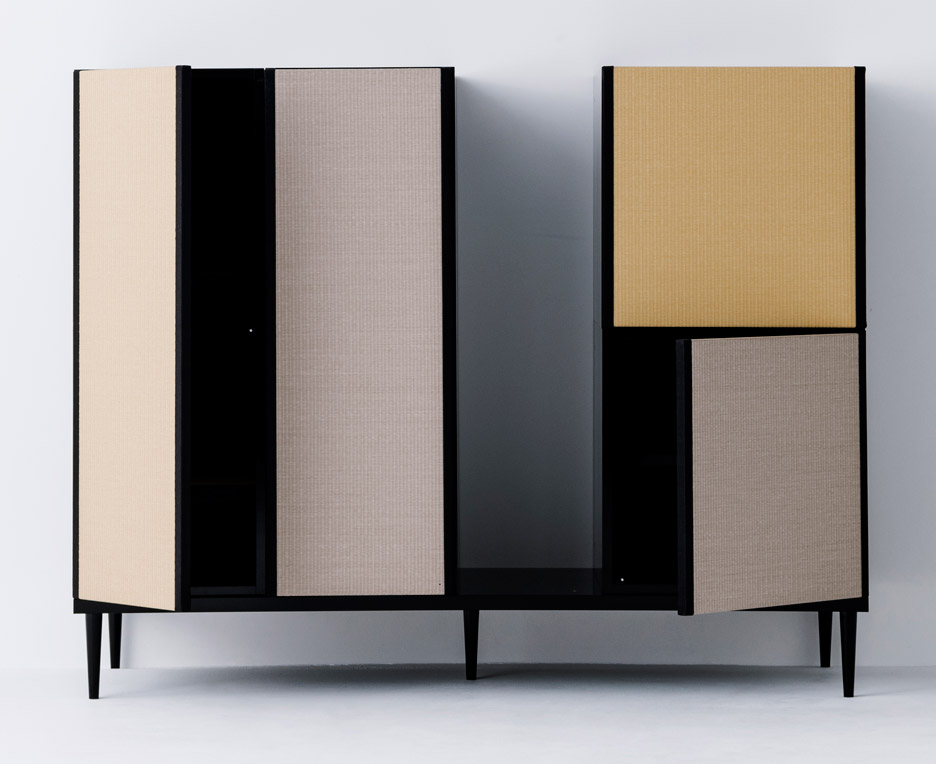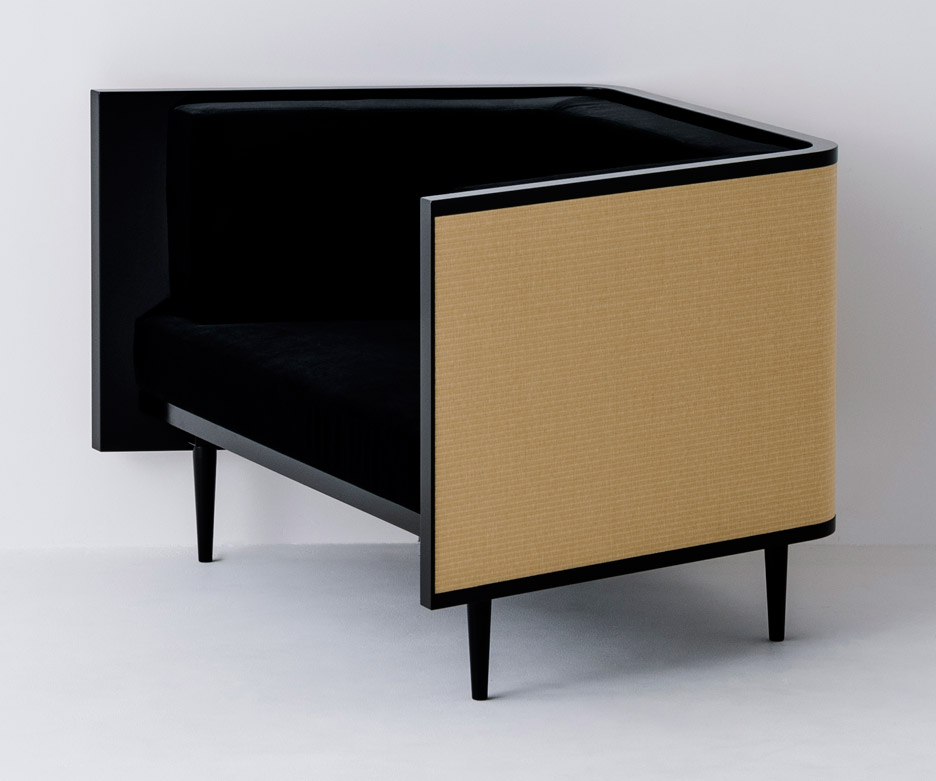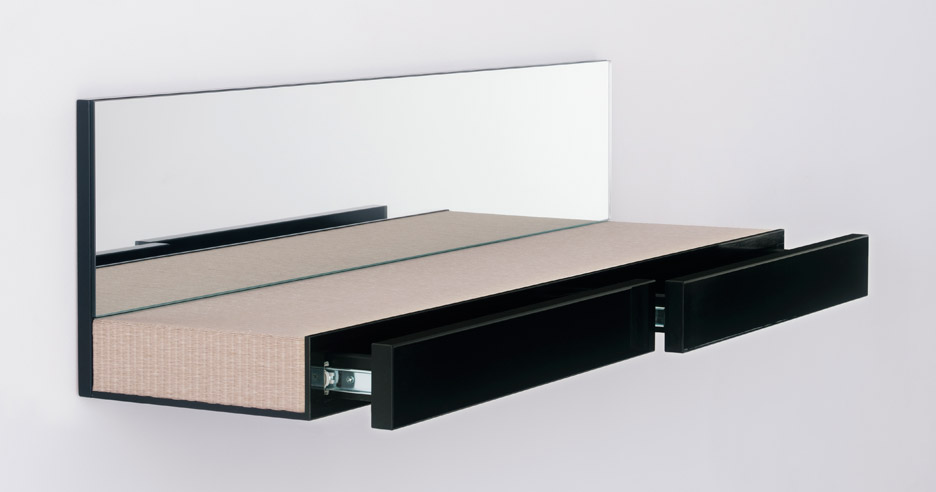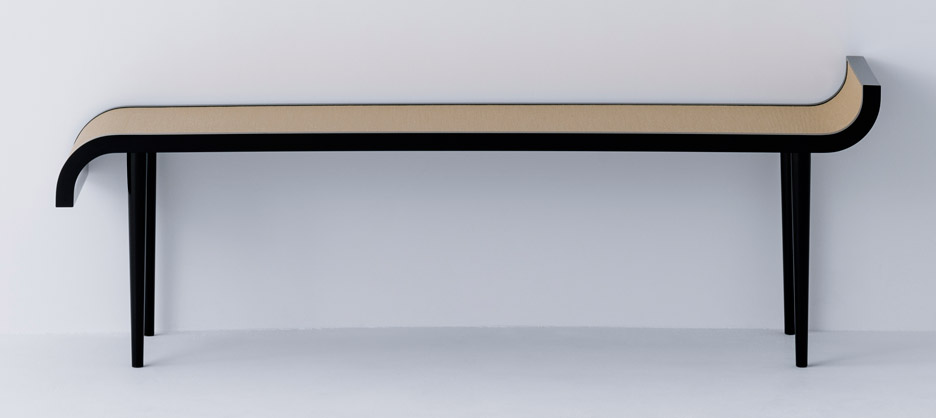Japanese tatami mats made into furniture by José Lévy
Japanese tatami mats have been moved from off of the floor and onto the furniture in this collection by French designer José Lévy (+ slideshow).

Created for Japanese manufacturer Daiken, the Moving Tatami range features panels of the traditional flooring on surfaces like the front of cupboard doors and the curving backs of sofas.

The furniture also mirrors Japanese ideograms in its shapes, which include benches that curve upwards at one end and an armchair that cocoons around the sitter. A sofa, stools, side tables, a storage cabinet and shelving complete the collection.
While tatami is typically woven from rice straw, Lévy's is made using washi, a traditional paper, to provide better durability. The pieces pair the tatami with lacquered or waxed wood.

Daiken wanted to work with Lévy due to the designer's affinity with Japanese culture, which stems from his grandfather Anatole, who founded Judogi, a manufacturer of kimono robes, hakama trousers and katana swords in Japan.

"I encountered Japan early on thanks to him," said Lévy. "It was my first experience of anything exotic, of some other place, of the 'unusual yet beautiful'."

The mats have been used as a flooring surface in Japanese houses for centuries. Although they are used less frequently today, one Niigata house was designed specifically so that each room would fit precisely 4.5 tatami.